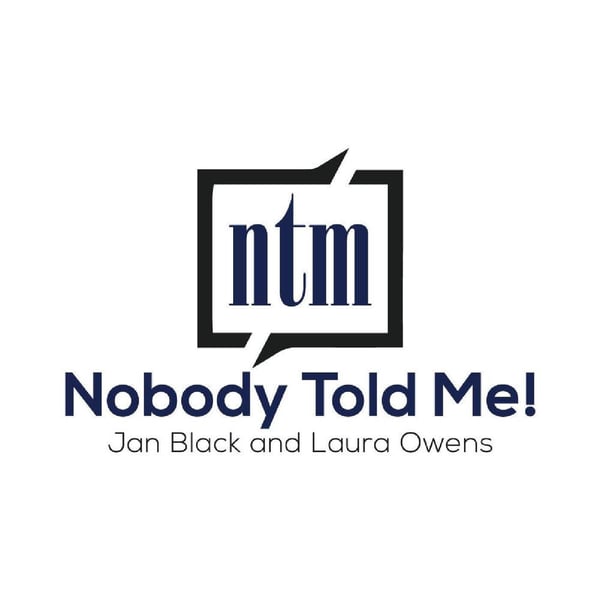Meghan Sullivan & Paul Blaschko: ...reasoning through the big questions of happiness, faith and meaning
Nobody Told Me!
Nobody Told Me!
4.2 • 671 Ratings
🗓️ 5 February 2022
⏱️ 31 minutes
🧾️ Download transcript
Summary
What does it mean to “live a good life”? And how can we do that? We explore those questions on this episode as we talk with two Notre Dame philosophy professors who’ve written a great guide for examining the quality and meaning of one’s own life.
Our guests are Meghan Sullivan and Paul Blaschko whose new book is called, "The Good Life Method: Reasoning Through the Big Questions of Happiness, Faith and Meaning".
Thanks to our sponsor of this episode!
--> Athletic Greens: Athletic Green's AG One is a special blend of ingredients that supports your gut health, nervous system, immune system, energy recovery, focus and aging. Athletic Greens uses the best products based on the latest science with constant product iterations. Right now, it's time to reclaim your health and arm your immune system with convenient daily nutrition, especially in the flu and cold season. Athletic greens is going to give you a free one year supply of immune supporting vitamin D and five free travel packs with your first purchase. All you have to do is visit athleticgreens.com/ntm.
Learn more about your ad choices. Visit megaphone.fm/adchoices
Transcript
Click on a timestamp to play from that location
| 0:00.0 | Welcome to Nobody Told Me. I'm Laura Owens. And I'm Jan Black. What does it mean to live a good life? And how can we do that? We'll explore those questions on this episode as we talk with two Notre Dame philosophy professors |
| 0:21.9 | who've written this fabulous guide for examining the quality and meaning of one's own life. |
| 0:27.5 | Our guest are Megan Sullivan and Paul Blaschko, whose new book is called The Good Life Method, |
| 0:33.6 | reasoning through the big questions of happiness, faith, and meaning. Thank you both so much for |
| 0:39.1 | joining us. Thank you for having us. Tell us how and why you decided to write the book. |
| 0:46.3 | Yeah, so the book is actually based on a course that Megan and I teach here at Notre Dame, |
| 0:52.2 | and we've been teaching it for about seven years. |
| 0:55.9 | And when we started teaching it, you know, the idea was we think philosophy is relevant for everybody. |
| 1:03.1 | But I think a lot of times, you know, just for whatever reason, it's seen as sort of an academic discipline. |
| 1:09.4 | It's abstract. It's not really relatable. |
| 1:12.1 | And so, you know, we designed, of course, here at Notre Dame, based on that conviction, |
| 1:16.4 | based on the thought that, you know, if you think really hard about big questions, like, you know, |
| 1:20.6 | whether it makes sense to have faith as part of your life, whether you think God exists, |
| 1:25.2 | whether, you know, you think you should spend all of |
| 1:28.8 | your time and effort in a life that's action-packed and busy or, you know, all of these sort of |
| 1:34.9 | big philosophical questions that, you know, from the time of Plato and Aristotle up to the |
| 1:39.4 | present philosophers have been thinking about and worrying about, you know, if you want to take |
| 1:44.1 | those and |
| 1:45.0 | use those as a way of interrogating and asking questions about how you can structure your own life |
| 1:51.0 | so that, you know, you can lead a happy, meaningful life. And so that's what we've done, |
| 1:55.7 | you know, with our students for for many years here. And just based on the response, we thought, you know, this is this is a |
| 2:02.5 | sort of message that we think a lot of people would be interested in hearing. And as we've |
... |
Please login to see the full transcript.
Disclaimer: The podcast and artwork embedded on this page are from Nobody Told Me!, and are the property of its owner and not affiliated with or endorsed by Tapesearch.
Generated transcripts are the property of Nobody Told Me! and are distributed freely under the Fair Use doctrine. Transcripts generated by Tapesearch are not guaranteed to be accurate.
Copyright © Tapesearch 2025.

